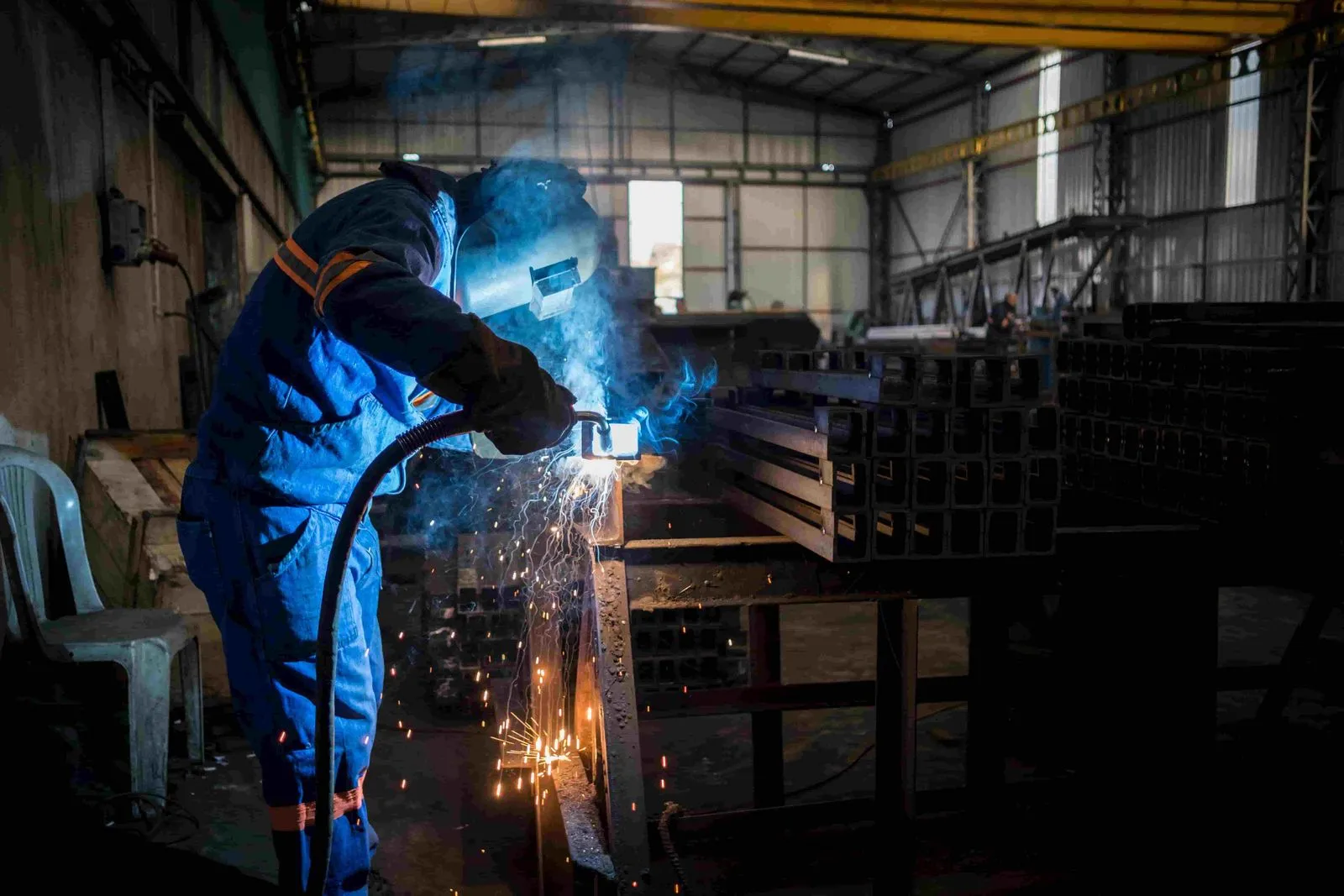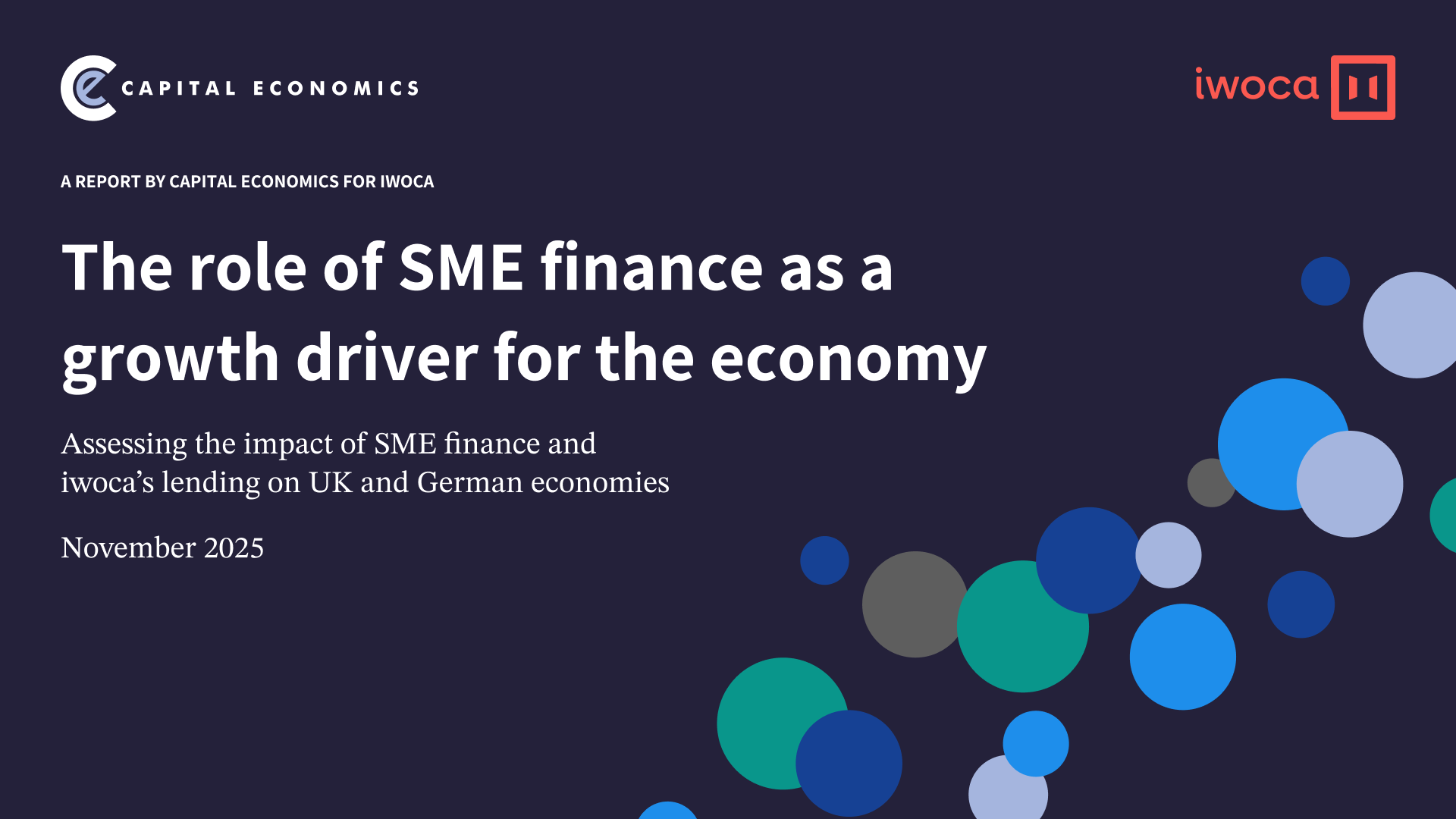Weathering the storm together
5
min read
Weathering the storm together
March 26, 2021






In the first quarter of 2020, everything looked sunny: we were breaking commercial records, and had big plans for the year ahead.
And then, March came round. Lockdown started and everything changed. Almost overnight, our focus shifted to helping customers make sense of their new situation.
It was a shift, not a stall – it was still a very busy year: we launched iwocaPay. We started lending under the government-backed Coronavirus Business Interruption Loan Scheme (CBILS). We even invested 50% more in our tech, product and analytics teams than the year before.
In other words, we had to steady the ship, and it called for all hands on deck
Every iwocan had to pull together, under high pressure and a fast-changing situation. And of course, the waters haven’t always been smooth. Like most companies in the past year, at times some of our team have struggled with pressure, others felt they weren’t developing, and we lost some people whom we would have loved to keep.
But now, with the worst of the storm behind us, I can see we’ve managed to endure it. And I know this is in no small part down to our team, and the incredible culture we share.
Through the stresses and strains, we’ve learned a few things about how we work together in a crisis. And I wanted to share these things with you.
1. Being transparent with each other builds trust
Trust is crucial in any relationship. At various points in the crisis, our CEO Christoph kept sharing details with all iwocans on our financial health, our latest priorities and what the outlook was for us.
Whatever we presented to our Board, we also presented to the team: we don’t want there to be ‘information asymmetry’ between our most junior and most senior staff. And perhaps this transparency comes with risks – but we believe the benefits of building trust far outweigh those risks.
2. Diversity of thought leads to better decisions
This is something we’re keen to keep fostering. Combine that transparency I just mentioned with a team of diverse thinkers, and you’ve got a vibrant community.
It improves the quality of your conversations. Reflecting on the past year, I think we’ve ended up making better decisions because more informed, empowered iwocans have felt able to challenge bad ideas before they came to fruition.
3. Keeping the team spirit alive calls for new ways to have fun together
Having fun has always been a big part of our culture. And I think at times, that easily could’ve started to slide: we’ve been popping in and out of lockdowns, and swiftly changing the rules on what is and isn’t allowed. So looking back, I’m really proud that we managed to organise things like:
- meetups with other local iwocans: when the ‘rule of six’ was around, we built a tool to help people figure out who else in the team lived nearby. Then, they met up for meals and drinks in local pubs or beer gardens – all on iwoca, of course.
- build-your-own iwoca house: as a company, we normally rent a ski chalet in the winter or a villa in the summer and then pack it with iwocans to work and socialise. Of course, a whole-company option wasn’t going to work in 2020. So instead, each iwocan had a budget for organising their own retreat with other iwocans in a covid-friendly way. We had teams making the most of travel corridors to Azores and Madeira and planning trips around the country. (All with flexible cancellation policies, just to be safe.)
- regular virtual team-wide socials: we had a calendar of events open to all iwocans, morning yoga (led by our awesome Head of Customer Insights), comedy nights, cook-a-longs, escape rooms and loads of other virtual stuff.
- coffee and donuts: we randomly paired people up to catch up for a coffee online. No agenda, other than to get to know someone a little bit better.
4. It’s important to find even more ways to say thank you
We’re already big believers in Radical Candor and giving feedback. But in the crisis, life at iwoca changed quite dramatically for some: there was a lot more work to do, people were stepping into roles they perhaps hadn’t done before, and they needed to react fast to things we hadn’t planned for.
Feedback from the team showed us that with all this going on, we needed to get better at recognising each other for these efforts. So we did, with shout-outs in town halls, thank yous through our feedback app (we use Reflektive, where thanks translate to vouchers) and sending personal gifts.
And again, when I look back, I see that a big part of what’s kept us going as a company is how people have switched their roles and teams for the good of iwoca – rather than for personal gain. So I really do hope we’ve given these people the credit they deserve.
5. Crises are times to double down on the help you give
Through the tough times, it became clear that some people – customers and iwocans alike – needed extra help to stay afloat.
As I touched on, many iwocans have switched roles just to give our customers this extra help. Our account managers were trained up to be able to adjust repayment plans for our existing customers who were affected by the crisis – something that had previously only been done by our collections team, who quickly became inundated with work as more customers were going overdue on their loans. Our marketing team worked day and night to keep customers updated on the various government schemes, and helped to establish and promote a marketplace for small businesses to sell to an online audience – #stockupsmall. Neither of these things were traditional ‘marketing’, but they rose to the challenge.
And then there’s the help we’ve given each other. Our ‘People Partners’ (also known as HR) have been brilliant: helping iwocans all over the business cope with huge personal and professional changes.
We’ve even partnered with Spill to help the team access professional therapy; now anyone can ask a therapist a question, or set up a session with a therapist over Slack. It’s the free, confidential support they need, whenever they might need it.
6. Fairness, pay and rewards can still be reviewed (and improved)
Through the crisis, we kept running pay reviews. And unlike some other companies, we didn’t reduce salaries for the people who were working. Why reduce people’s pay, we thought, when people are working at their limit?
We’ve also used this time to overhaul our employee stock option scheme: a more favourable strike price, a shorter vesting period (iwocans can now buy stock after a year, instead of four), and we’re allocating people options yearly in a way that is linked to their pay. We’re rolling out these options later this month, and can’t wait to see more of the team invested in our success as a business.
We’ve had to make some really difficult decisions too, when we saw loan origination fall away; we furloughed around 25% of the team at points in 2020. When we did, we topped up their salaries to 60% for the majority of the time they were not working.
7. When the world turns upside down, it’s a chance to learn
Before 2020, our performance charts were trending upwards. So when we saw a big chunk of business disappear because of the pandemic, it was particularly hard to stomach.
But we innovated, survived and then thrived: new products, new plans. It’s been hard at times, and it’s been a big learning experience. And overall, I really believe we’ve all grown taller: we know more about ourselves, our community and how our small business customers behave in times of stress.
smallQuoteI’m so immensely proud of iwoca and what we’ve done together over the last year; it hasn’t always been plain sailing, but it has always been a team effort.
Over the summer, I stopped by the office a couple of times: even with just a handful of people kicking about, it still felt like coming home. Whether there’s ten people in the office or hundreds, our character still shines though – I think that bodes well for a new world of hybrid working when lockdown ends.
And we even had ex-iwocans come back to ease a few bottlenecks or take on new roles: this shows me our grass is very green, if I was ever in doubt. I’m so immensely proud of iwoca and what we’ve done together over the last year; it hasn’t always been plain sailing, but it has always been a team effort.
{{flexi-loan="/components"}}


How to use payroll loans for small businesses

Business Loans comparison: High Street Banks vs. Alternative Lenders
Comparing the pros and cons of getting a business loan from traditional lenders and alternative finance providers, including how they differ in application processes, speed of funding, rates and flexibility.

Working capital ratio
Discussing the importance of calculating your company’s working capital ratio, what it represents and how to improve the ratio.





